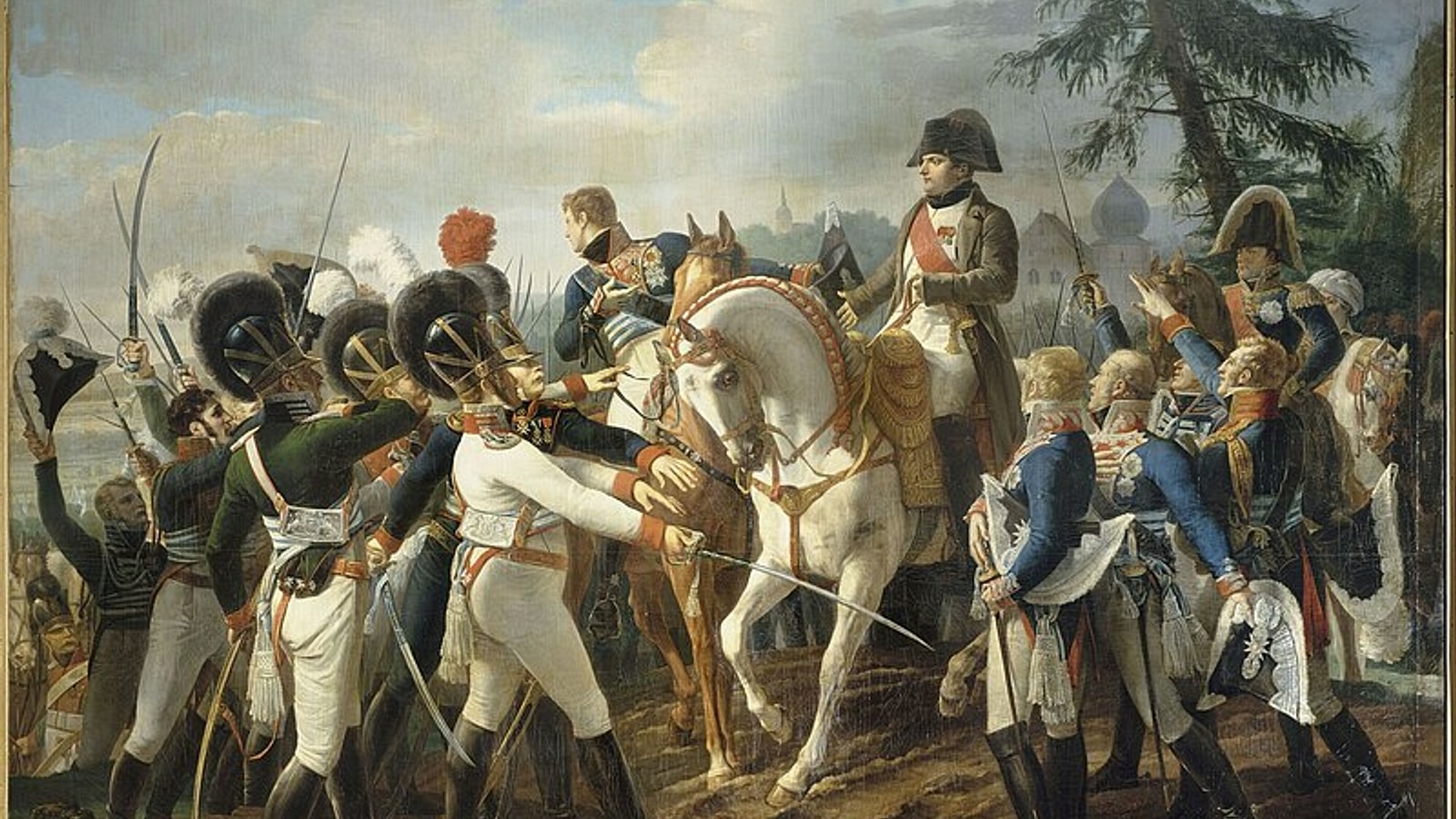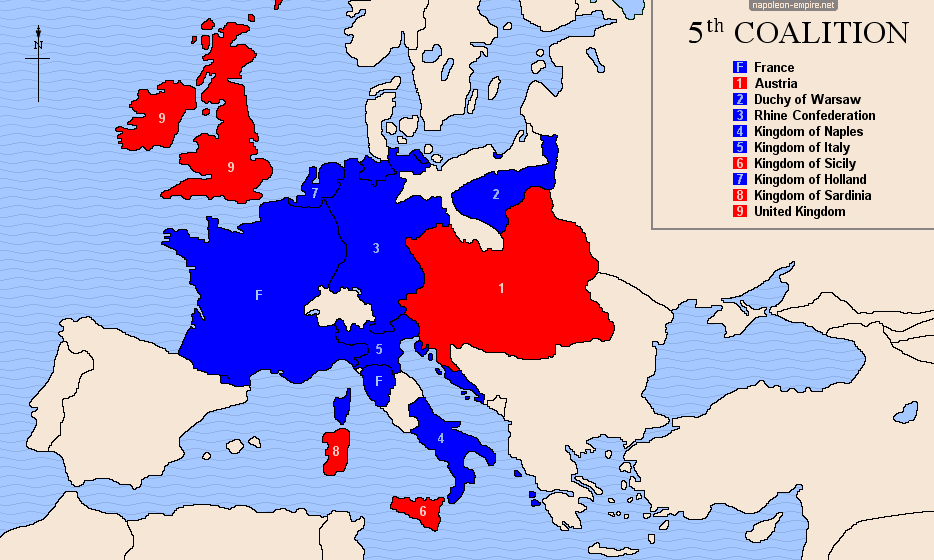The Fifth Anti-French Coalition was one of the many coalitions formed to fight against Napoleon Bonaparte’s growing power in Europe. This particular coalition came about in 1809, during a period of intense conflict known as the Napoleonic Wars. Now, let me tell you a little bit about who were all involved in this coalition, and what it was all about.
First off, let’s talk about the main player in the Fifth Coalition – the Austrian Empire. They were the ones leading the charge against Napoleon, having had enough of his domination over Europe. Austria had already faced Napoleon before, but this time they were not alone. They had some powerful allies on their side, who were also ready to take down the French emperor.

Now, apart from Austria, the United Kingdom was one of the key members of this coalition. The British, as usual, weren’t happy about Napoleon’s expansion and influence. They had been fighting Napoleon for years, and they were eager to team up with Austria in hopes of breaking his grip on Europe. The UK didn’t just stand by and watch – they sent forces to help with the fight, especially in the Iberian Peninsula, though most of the heavy fighting was happening in Central Europe.
Next in line were Portugal and Spain. These countries, especially Portugal, were under pressure from Napoleon. Spain, too, had been heavily affected by the French presence in their country. While Spain was dealing with its own issues and rebellions within, it still contributed to the anti-French effort, though not as actively as Austria or Britain.
Then we have the Kingdom of Sardinia and the Kingdom of Sicily. Now, these two were a bit more on the sidelines in terms of fighting, but they still played a role in supporting the coalition. They didn’t send large armies to the frontlines, but they helped by providing resources and allowing the coalition’s forces to pass through their territories.
The war itself was a tough one for both sides. Napoleon’s forces were still very strong, and they had been heavily engaged in other wars, like the Peninsular War, where they were fighting in Spain and Portugal. This spread his forces thin, which worked to the advantage of the coalition forces, who had a bit of breathing room in Central Europe.
The Fifth Coalition was not just a military alliance but a political one as well. It represented a united front of nations who were tired of Napoleon’s control over European affairs. While it wasn’t the largest or most decisive coalition, it played an important role in chipping away at Napoleon’s power.
In the end, despite the Fifth Coalition’s efforts, Napoleon managed to win some key battles, and Austria was forced to sign a peace treaty. But even though the Fifth Coalition didn’t win the war outright, it showed that Napoleon wasn’t invincible, and it set the stage for future coalitions that would eventually bring about his downfall.

So, in a nutshell, the members of the Fifth Anti-French Coalition were Austria, the United Kingdom, Portugal, Spain, and the Kingdoms of Sardinia and Sicily. It was a mix of powerful nations and smaller ones, all coming together to try and stop the French Empire’s expansion. The war was tough, and while it didn’t bring an immediate victory, it was an important part of the long struggle against Napoleon.
Tags: [War of the Fifth Coalition, Napoleonic Wars, Austria, United Kingdom, Anti-French Coalition]